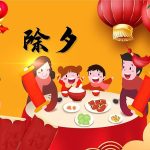As the world gets ready to celebrate Christmas Eve with lights, music, and festive cheer, let’s take a moment to look at how this special evening aligns with a very Chinese tradition: Chuxi (除夕), or Chinese New Year’s Eve! While the world is marking the festive occasion of Christmas, for many Chinese families, Chuxi (除夕) is just around the corner, and the excitement is building for the biggest family reunion of the year.
In China, Chuxi (除夕)—the evening before Chinese New Year—is not just a night of fireworks, feasts, and joy, but also an evening full of rich traditions and heartwarming customs that have been passed down for generations. Though different regions have their own special ways to celebrate, the essence of Chuxi (除夕) remains the same: it’s about bringing people together, honoring family, and ushering in a year of prosperity and good fortune.
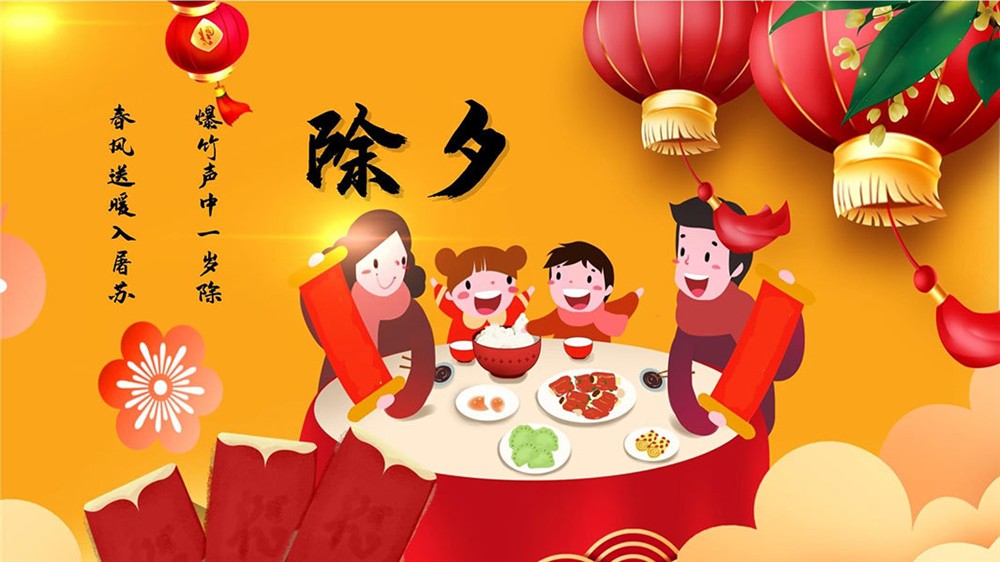
So, what are some of the fun and meaningful traditions that take place on this important night in China? Let’s dive in!
A Feast for the Heart: The Reunion Dinner
On Chinese New Year’s Eve, families come together from near and far for a Reunion Dinner (团圆饭), which is considered the most important meal of the year. It’s a time when family members—whether living together or separated by distance—gather around the table to share a feast full of delicious traditional dishes.
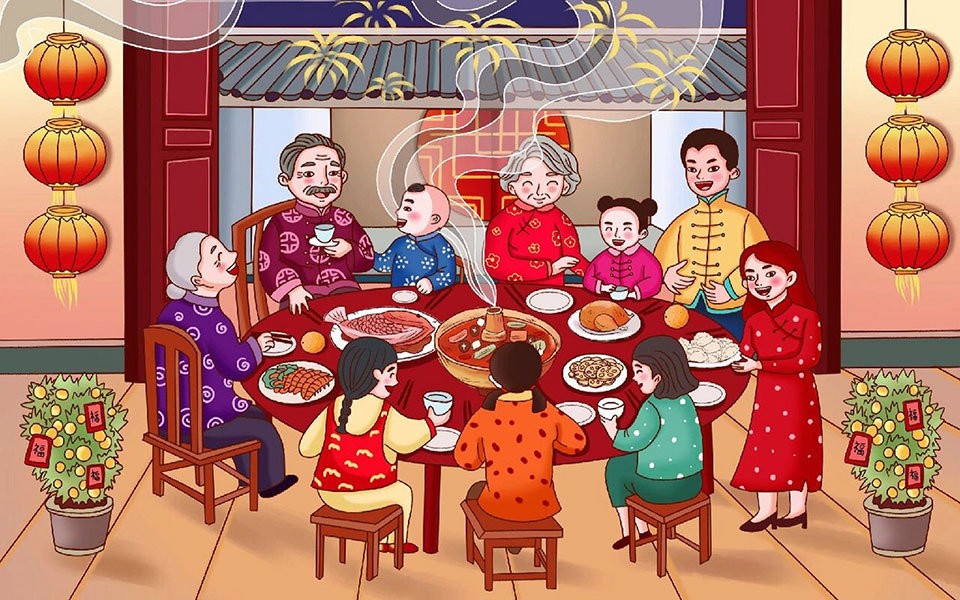
A highlight of the meal is the dumplings (jiaozi, 饺子), which symbolize wealth and prosperity because their shape resembles ancient Chinese gold ingots. Some families even place a coin inside one of the dumplings, and whoever finds it is said to have good luck in the coming year!
But the feast doesn’t stop there! Expect to see fish (yú) on the table too, as its Chinese name sounds like the word for “surplus,” symbolizing abundance and good fortune for the year ahead.
Fireworks and Firecrackers: Bang, Boom, and Good Luck!
Just as fireworks light up the skies around the world on New Year’s Eve, China’s Chuxi (除夕) celebration kicks off with a spectacular fireworks display that lights up the night sky! The loud sound of firecrackers going off is believed to scare away evil spirits and bad luck, making way for a fresh start and a clean slate for the coming year.
Families gather outside to light fireworks, creating a vibrant and joyous atmosphere. The bigger and louder the fireworks, the better the fortune they are believed to bring. It’s like a big welcome party for the New Year!
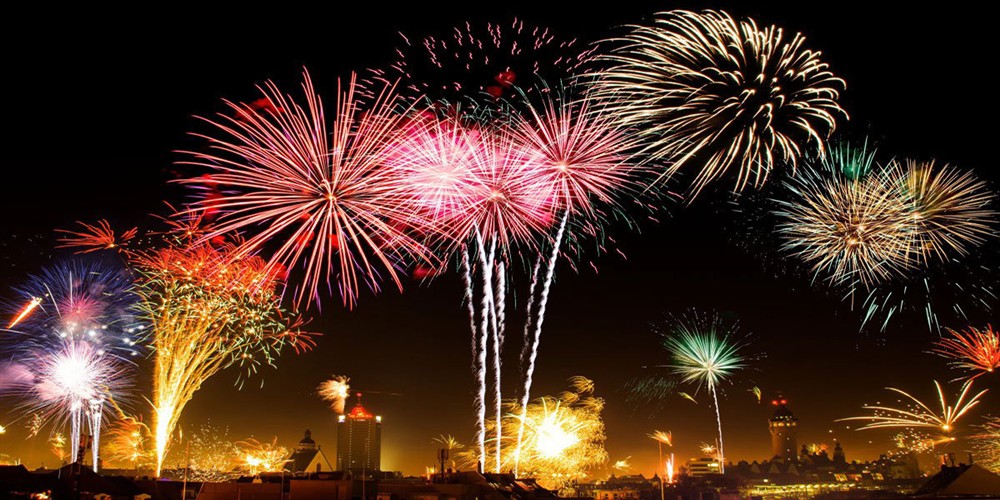
The Red Envelope Tradition: Sending Luck and Love!
If you’ve ever heard of the red envelope tradition, then you know that Chuxi (除夕) is the perfect time for it! The hongbao (红包) is filled with money and given to children, younger relatives, and sometimes friends, as a way of wishing them health, happiness, and good fortune for the year ahead.
The color red is considered auspicious in Chinese culture, symbolizing luck and happiness. Parents, grandparents, and even friends will hand out these red envelopes with cheerful wishes for a prosperous year and sweet moments ahead. Some people even place the money inside lucky numbers or in amounts that are easy to double, for even more luck!
Staying Up Late: The ‘Shou Sui’ Tradition
One of the most cherished customs of Chuxi (除夕) is the practice of staying up late, known as Shou Sui (守岁). The idea behind this tradition is that staying awake until midnight helps drive away evil spirits and ensures a long life for the family. It’s a symbolic act of keeping away bad fortune and welcoming the new year with renewed energy and hope.
During this time, families might play games, watch TV programs, or gather around to enjoy the company of each other. The late-night bonding session is a lovely way to close one chapter and welcome the next.
Cleaning and Decorating: Out with the Old, In with the New
Before Chuxi (除夕) arrives, families take time to clean their homes—sweeping away the old year and all the negative energy it may have brought. It’s believed that cleaning helps get rid of any bad luck and makes space for good fortune in the year to come.
This is also when homes are decorated with red lanterns, couplets, and spring festival decorations that welcome in the New Year. Paper cuttings of flowers, animals, and lucky symbols are hung on windows and doors to ensure happiness, health, and prosperity.
New Year’s Greetings: Wishing for Prosperity!
As the clock strikes midnight, many people take part in the first greeting of the new year. This is when they greet their family and friends with special New Year’s wishes, like “Gong Xi Fa Cai (恭喜发财)” (wishing you wealth) or “Sheng Yi Xing Long (生意兴隆)” (may your business flourish). These words are meant to send good vibes and positive energy for the upcoming year.
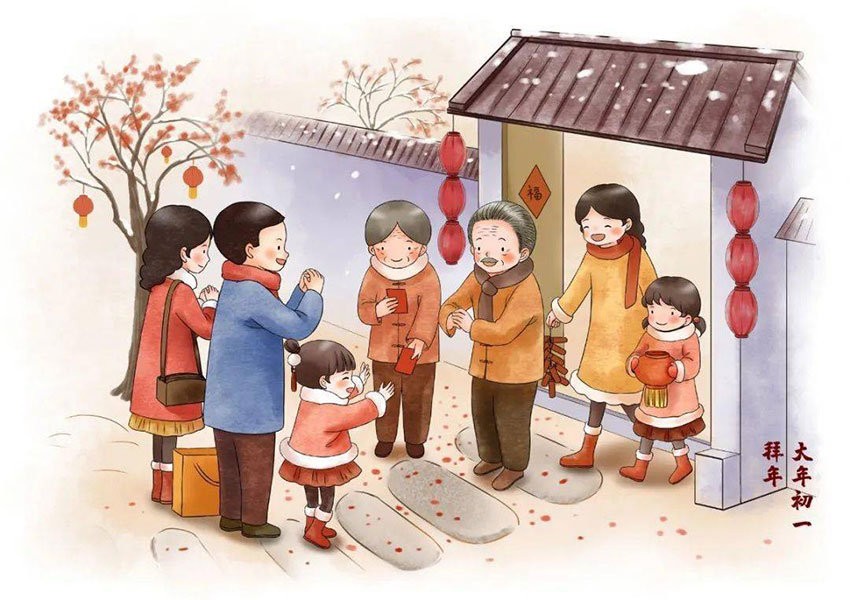
After the greetings, the celebration continues with more food, more laughter, and of course, plenty of toasts to health and happiness.
The Sweetest Tradition: Eating ‘Tangyuan’ (Sweet Dumplings)
Another popular Chuxi (除夕) tradition involves eating tangyuan (汤圆), which are sweet rice dumplings filled with sesame, red bean paste, or peanut butter. The round shape of the dumplings symbolizes family unity and togetherness—perfect for a holiday that celebrates family bonds!
Tangyuan (汤圆) is often served in a sweet, warm soup, making it a comforting dish that symbolizes warmth and happiness in the New Year.
Chuxi (除夕), or Chinese New Year’s Eve, is more than just the night before a new year—it’s a celebration of family, hope, and new beginnings. Whether you’re lighting fireworks, enjoying a big feast, or simply spending time with loved ones, these cherished traditions connect the past, present, and future in the most beautiful way.
So as we get ready for Chuxi (除夕), let’s share in the joy, the love, and the wishes for a prosperous new year ahead! May your holiday season be filled with laughter, family, and, of course, delicious food!

